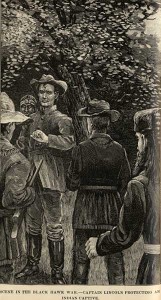
Many U.S. presidents came from a military background. Abraham Lincoln was no exception. His brief service as both a captain and a spy in the Black Hawk War was unusual. But it offered some training for his future political life. As far as I know, Lincoln was the only president who had worked in an official capacity as a spy.
How the Black Hawk War Interrupted Abraham Lincoln’s First Campaign
In early 1832, Lincoln announced his first candidacy ever – for the Illinois House of Representatives. His platform focused on river navigation, education, and limiting usury rates. But an Indian chief interrupted Lincoln’s campaign. When Black Hawk crossed into Northern Illinois in April 1832 to repossess tribal lands earlier ceded to the U.S., he sparked a brief conflict known as the Black Hawk War.
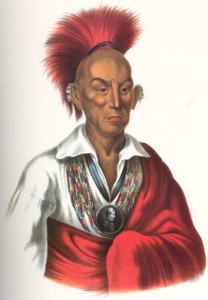
Lincoln was already a member of the state militia. Just two days after the Black Hawk War started, perhaps even before news of Black Hawk’s raid reached him, Lincoln attended the spring muster of the 31st Regiment. His company elected him captain. When Governor John Reynolds called up the militia to fight the Black Hawk War a few days later, Lincoln volunteered. He had three short tours of duty.
Lincoln’s Company Elected Him a Captain in the Black Hawk War
The recruits at New Salem formed a mounted company, and for the second time that month, Lincoln was elected captain. He didn’t want to run for captain, but friends grabbed him and pushed him forward. That victory, Lincoln later said, was “a success which gave me more pleasure than any I have had since.”
Lincoln’s company never experienced combat. But twice it came across casualties. On May 15, his company found the scalped corpses of eleven soldiers at Stillman’s run. One week later, the company found mutilated bodies of women and children – also scalped. Lincoln had more burial work than combat work.
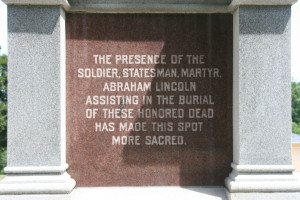
How Abraham Lincoln Saved an Indian in the Black Hawk War
In the company’s one encounter with an Indian, Lincoln opposed his own men. An old man entered the camp. He is thought to have been a Potawatomi, and the Potawatomi tried to remain neutral in the war. Lincoln’s men took the Indian for a spy and wanted to kill him. But he was carrying a note of safe passage signed by the Secretary of War. Lincoln jumped between his men and the Indian, saying, “Men, this must not be done – he must not be shot and killed by us.” When his company threatened to fight their own captain, Lincoln told it to choose its weapons. His men backed down. One of them later said Lincoln would do justice to all.
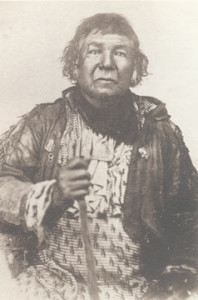
When Lincoln’s company was mustered out of service at the end of May, he immediately enlisted in another mounted company. The man who mustered him in was none other than Lt. Robert Anderson, the commander of Fort Sumter at the outbreak of the Civil War. Lincoln’s work consisted of scouting and burying more victims of an Indiana massacre at Galena.
Abraham Lincoln as a Spy
On June 20, Lincoln officially became a spy in the services of the United States government. He enlisted as a private in Dr. Jacob Early’s Independent Spy Company. His duties involved scouting and carrying messages. When a battle broke out at Kellogg’s Grove on June 25, the spy company was dispatched there the same day. It arrived at sunrise the next morning. Once again, the men in Lincoln’s company encountered victims of the Black Hawk War and buried them. Lincoln described the scene: “The red light of the morning sun was streaming upon them as they law, heads towards us, on the ground, and every man had a round red spot on the top of his head, about as big as a dollar, where the redskins had taken his scalp. It was frightful, but it was grotesque, and the red sunlight seemed to paint everything all over.”
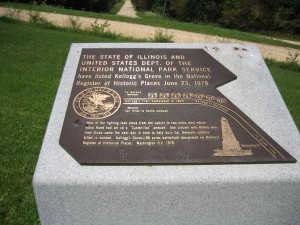
Lincoln was discharged in July and returned home to continue campaigning for the state legislature. He lost the election, but would run again. In three short months he had made friends in the Black Hawk War who would support his future political career. He learned a little about leadership and his election as captain gave him a foretaste for politics.
What signs of the future president do you see in the captain, private, and spy?
Literature on point
Michael Burlingame, Abraham Lincoln: A Life, vol. 1 (Baltimore: Johns Hopkins University Press, 2008); quotes on pp. 67-69.
Lincoln Sesquicentennial Commission, The Lincoln Log: A Daily Chronology of the Life of Abraham Lincoln



Fascinating article. I didn’t know that Abraham Lincoln was a spy during this period.
It just shows you that even Historians learn more about History.
Thanks, Rick! I didn’t know about Lincoln’s being a spy either until I accidently ran cross it, and as soon as a read about it, I just had to write a blog post.
Ann Marie, I have the honor of being related to a subject in your article, Black Hawk. Believe me, when I say, the Sac and Fox have not forgotten the stolen land taken from them at the point of a gun and through dubious means. This is a part of history that is never told because the victors write the history. Regards
That is indeed an honor, Ted. The Sac, Fox, and Native Americans as a whole shouldn’t ever forget. It is a part of history that should be told. Thanks for commenting.
did pres. Jefferson Davis C.S.A. and pres. Abraham Lincoln know each other during the black hawk war.
Interesting question. I don’t think so. To the extent you can trust Wikipedia, it says Davis was in Mississippi during the Black Hawk was and Lincoln in Illinois. Davis did accompany Black Hawk to prison, though.
Scalping was started by the White Eyes .The Natives followed .The outright Slaughter of the Elders Women and Children rests on the Shoulders of the USA Soldier’s.What they did to my Ancestor’s is Horrendous and always will be ..The Europeans wanted everything every inch of Land .They did Not succeed.The Horror Stories of the Past must Never be forgotten ever.I will continue to write about the TRUE History of it all .Now in 2022 they are trying their best to Hide the TRUTH .lThis will Not happen there are far to many like me .,Navajo here and Proud
That’s what I’ve heard too, that the whites started scalping, not the Native Americans.
Hello,
I live in Dixon, IL. where Fort Dixon was located during the Blackhawk war. Col. Zachary Taylor, Lieutenant Jefferson Davis and Private A. Lincoln were here at Fort Dixon at the same time in 1832.
Wow, that’s three future presidents, two Union and one Confederate…. Thanks for complementing my post with that interesting tidbit.